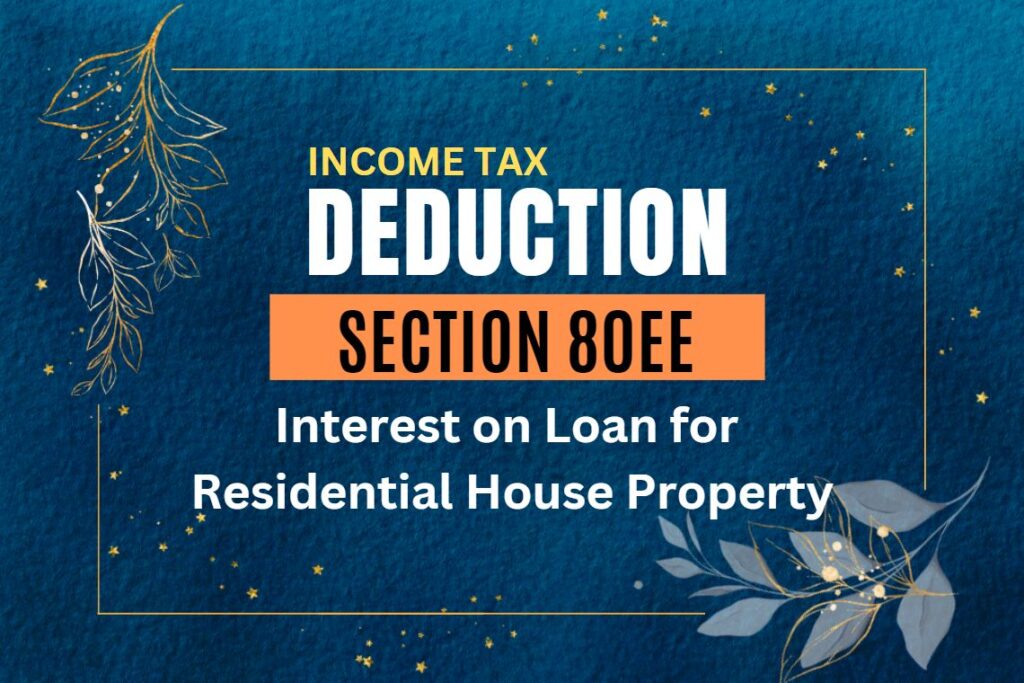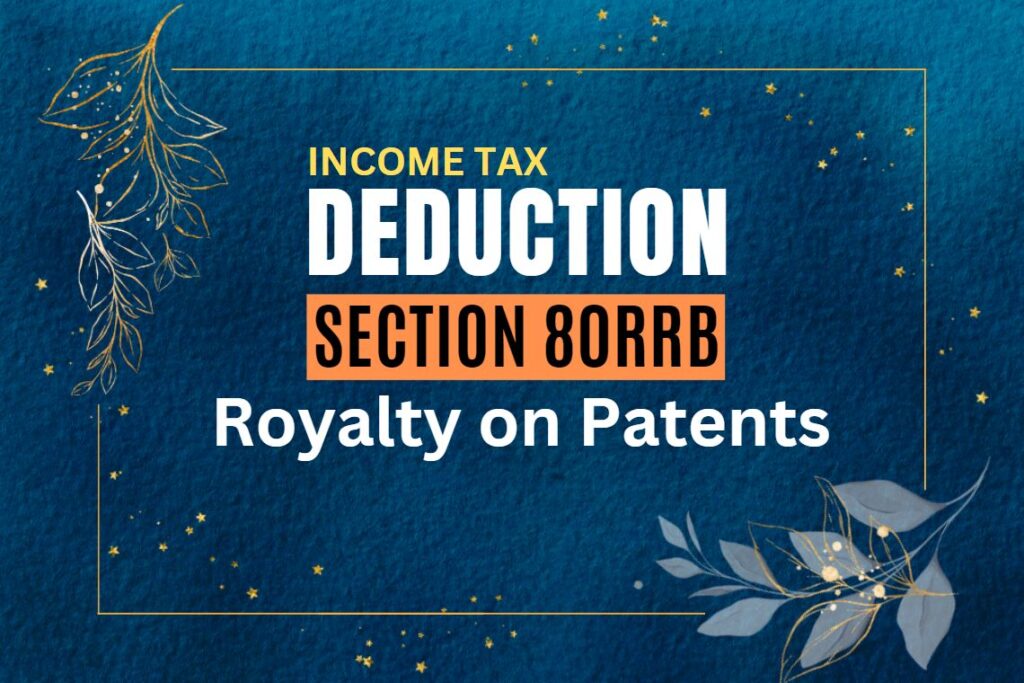Income tax laws in India provide various deductions and exemptions to taxpayers, helping them reduce their taxable income. One such deduction is available for individuals who have taken a loan to purchase a residential house property. Section 80EE of the Income Tax Act, 1961 allows for a deduction in respect of interest on such loans.
Under Section 80EE, an individual can claim an additional deduction of up to INR 50,000 on the interest paid on a loan taken for the purchase of a residential house property. This deduction is over and above the deduction of INR 2,00,000 available under Section 24(b) of the Income Tax Act. However, there are certain conditions that need to be fulfilled to claim this deduction.
Conditions to Claim Deduction under Section 80EE
To be eligible for the deduction under Section 80EE, the following conditions must be met:
- The loan should have been sanctioned by a financial institution between 1st April 2016 and 31st March 2017.
- The amount of the loan sanctioned should not exceed INR 35,00,000.
- The value of the residential house property should not exceed INR 50,00,000.
- The individual should not own any other residential house property on the date of sanction of the loan.
If all the above conditions are met, the individual can claim a deduction of up to INR 50,000 per financial year. This deduction is available for a maximum of 5 consecutive years, starting from the year in which the loan was sanctioned.
How to Claim Deduction under Section 80EE
To claim the deduction under Section 80EE, the taxpayer needs to follow these steps:
- Compute the total interest paid on the loan during the financial year.
- Claim the deduction of up to INR 2,00,000 under Section 24(b) of the Income Tax Act.
- If the interest paid is more than INR 2,00,000, claim the additional deduction of up to INR 50,000 under Section 80EE.
- Mention the details of the loan and the deduction claimed in the appropriate sections while filing the income tax return.
Example:
Let’s say Mr. X is a first-time home buyer. He has taken a loan of Rs. 40 lakh from a bank to purchase a residential house property. He is paying interest of Rs. 80,000 per year on the loan.
Mr. X is eligible to claim a deduction of Rs. 50,000 under Section 80EE for the interest paid on the loan.
Important Points to Note
- The deduction under Section 80EE is available for a maximum of 5 years, starting from the year in which the interest repayment begins.
- The deduction is available even if the loan is taken for a period of more than 5 years.
- The deduction is not available if the individual has any other residential house property.
Documents required:
To claim the deduction under Section 80EE, the individual must submit the following documents along with their income tax return:
- Proof of payment of interest on the loan.
- Certificate from the financial institution stating the amount of interest paid during the financial year.
- Declaration from the individual stating that he/she is a first-time home buyer.
Ownership Criteria:
- The taxpayer claiming this deduction should be the owner or co-owner of the residential property.
- The property should be a self-occupied house property, meaning the taxpayer or their family should reside in it.
Carry Forward of Unclaimed Deduction:
If the entire deduction amount of Rs. 50,000 is not utilized in a particular financial year, the unclaimed deduction can be carried forward to the subsequent financial year.
No Need for Certificate:
Unlike some other sections, you don’t need to obtain any special approval or certificate to claim this deduction. However, you should maintain records of the loan and interest payments as proof.












